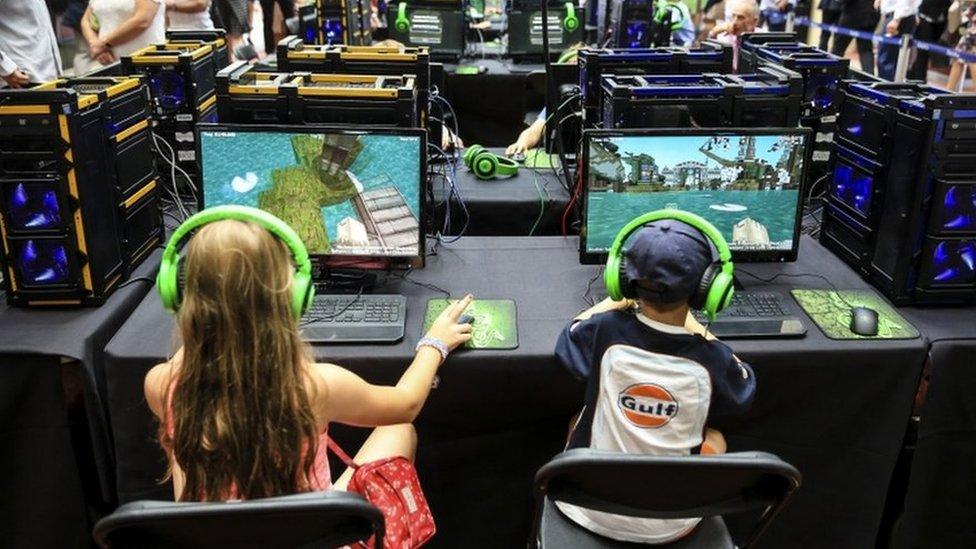How to tame your kids' computer habits
- Published

More and more parents are putting locks and blocks on the time their children spend online
I am an idiot. A tyrant. Vindictive. Ignorant and old. Uncaring, too. There have been tears, expletives, and I have been threatened with violence on several occasions.
Why?
All because I'm using technology to limit the amount of time my two 12-year-olds spend online or playing games.
I turned on the parental controls on the family computers so they stop working at specific hours. I put in place filters that mean I can radically limit which sites my children visit via their tablets. These too can be adjusted for different times of the day.
My boys spend a lot of time on their tablets and our home computers. I realised it had become a problem when I saw them watching YouTube via a tablet as they tied their shoelaces before leaving for school. My worries about what effect this might have on them are founded on several studies.
"Every hour of screen time has an impact," said Dr Kirsten Corder, a senior investigative scientist at the Centre for Diet and Activity Research (Cedar) at the University of Cambridge's Institute of Public Health.
In a study, Dr Corder and colleagues looked, external at the leisure habits of 845 children aged, on average, 14.5 and found that an extra hour per day spent watching TV, playing games and browsing online is "associated" with poorer GCSE grades at age 16.
"The difference can be eight or nine GCSE points," said Dr Corder. This translates into dropping two grades in one subject or one across two subjects. Like all parents, I want my kids to do the best they can and removing one drain on their attention seems sensible.
The Cedar study came out just before another from the National Children's Bureau Northern Ireland, external that looked at what happened to the grades of 600 children aged 14-16 who played games twice a day on tablets and other portables, They too were less likely to excel at GCSEs.
Family strife
These studies have been extensively quoted at my children since I started on this project. Both responded that they were not doing their GCSEs and they would spend less time online when they were preparing for those exams.

Computers can be good learning tools but many children only use them to play games
But, I countered, what about building up good habits now? How about learning to manage this time better so they have enough time to spend on homework and other activities?
This argument did not convince them. They said because I was old I did not understand how important time online was to them.
There is some truth in that, said Vicki Shotbolt, chief executive of Parentzone which helps families, especially parents, get to grips with the net and the issues it throws up.
"We are having a bit of a panic about screen time," said Ms Shotbolt, much in the same way that other generations worried about the impact of radio, TV, rock and roll or jazz on young people.
"What's absolutely true is that technology has changed family life forever but that does not mean it's a change for the worse," she said.
Parents who do tackle screen habits need to appreciate the sophisticated ways that children use technology, she said.
"There's a real issue with making time online sound like bad or wasted time," she said. "If a child is spending 15 hours on YouTube teaching themselves to play the violin then that might be a good use of their time."
I wish.
Control break
I do know that computers are great tools. And I do appreciate that my children play with their friends online because it is hard for them to meet in the real world. And I know there is a lot of pressure on them and screen time can be a way for them to claim some relaxation space.
But it'd be great if they did spend more time programming, tinkering and learning than they do trouncing each other on Minecraft, Heroes of the Storm or Agar.io.
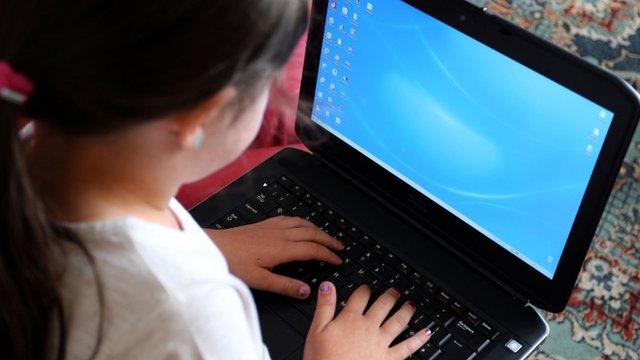
Children spend about 15 hours a week online, suggests research by Ofcom
The key to managing this is balance, said Ms Shotbolt.
"Do you feel you are in control and do your children feel like they are in control?" asked Ms Shotbolt. "If that balance is starting to go wrong it might need changing."
About 48% of parents are having a hard time regulating screen time, suggests research by Vodafone. It did the study as it launched services to help parents manage that online time. It is not alone in producing those tools. ISPs, security firms, PC producers and router makers all have software that can manage one or more parts of that online life.
But the tools do take some adjusting and often are not as comprehensive or flexible as you might hope. I went for a two-pronged approach tackling it at the router and PC level. This falls short of what I really wanted which was just to set it up and let it run.
But, said Gareth Lockwood from Norton by Symantec, being involved with the way my boys use technology is kind of the point.
"It just helps trigger the conversation," he said.
Ideally it is something that should get a family talking about some of the dangers that can be encountered online and what counts as a reasonable amount of time to be using a computer or playing games.
"Being able to block bad sites helps you out but does not address the grey areas and does not teach healthy habits," he added. That nuance is down to the parents.
And now I do feel like I am more in control thanks to the technology. But I will need to keep an eye on the set-up, said Ms Shotbolt who has heard stories of smart kids who find their way around the controls.
One, thwarted by the time-based controls on the family, simply changed the system clock so the PC never thought it was time to impose the block.
There are also limits on how much control I can exert. When they have their own phones they can avoid the controls entirely by using the mobile network to browse. And, if they are around at a friend's house they might get unfettered access too.
But this exercise might help them manage that time too. Despite the tears, accusations and threats it has been useful because it got my children thinking about what they do online. About they ways to stay safe and to tell us if they see anything upsetting or inappropriate.
And, eventually, it'll mean we spend more time together rather than all staring at different screens.
- Published19 November 2015
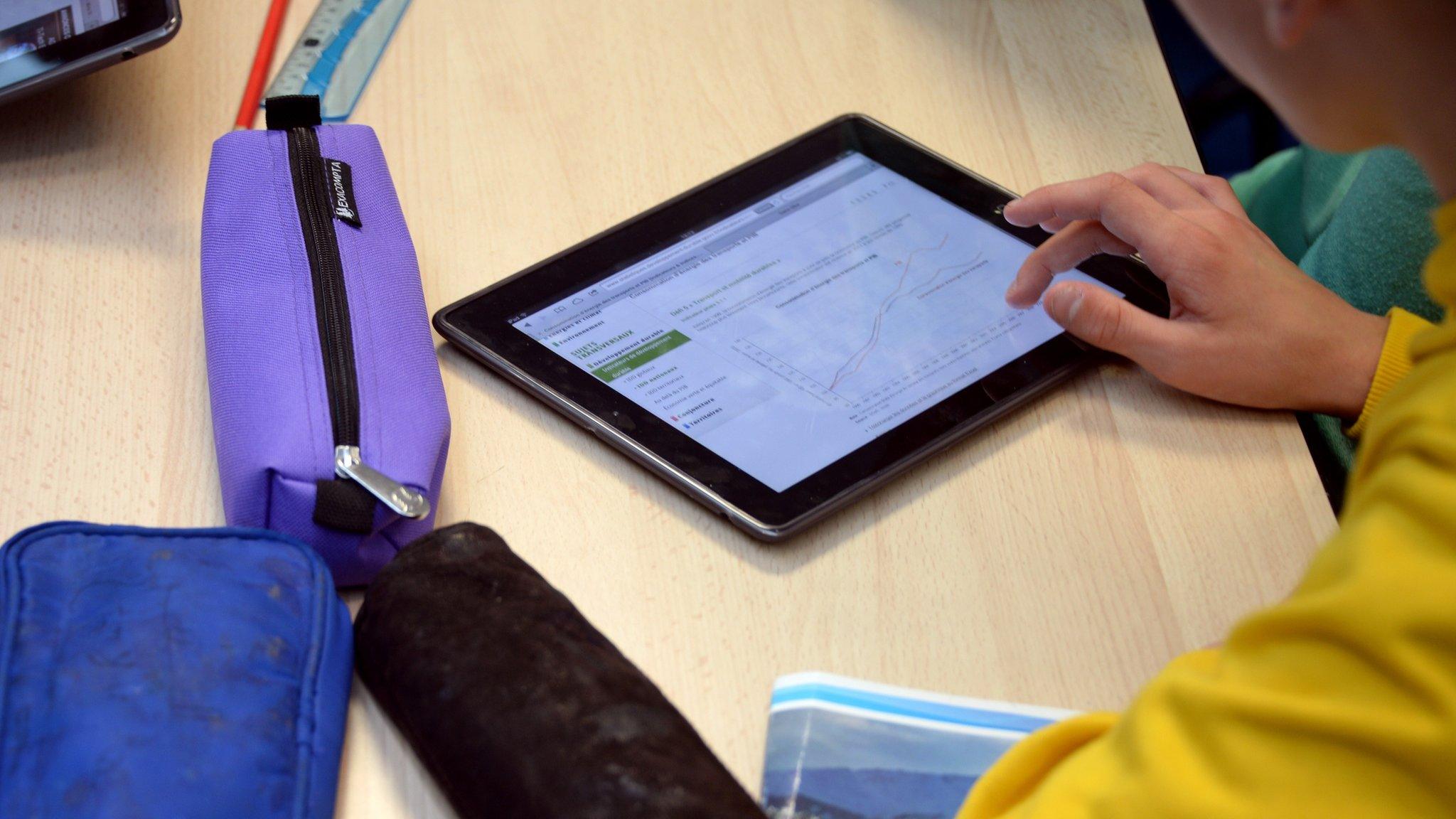
- Published12 October 2015
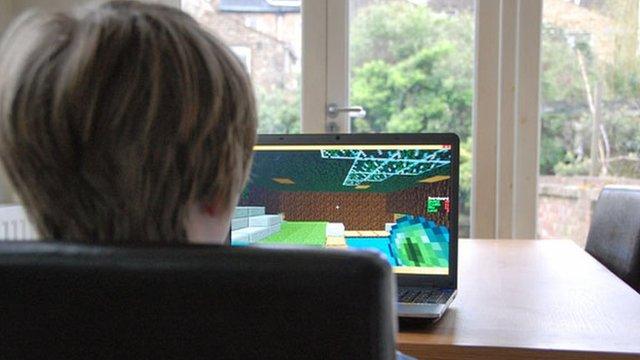
- Published4 September 2015
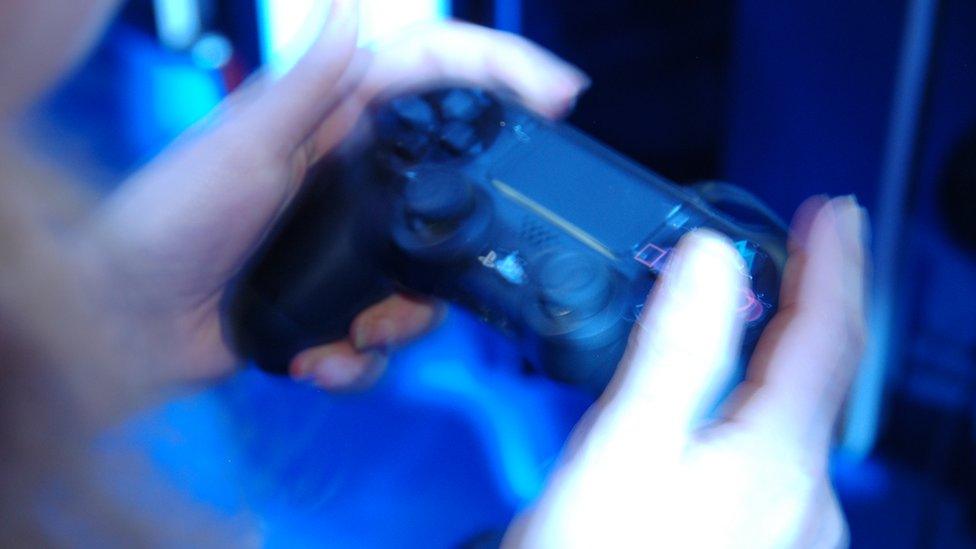
- Published5 November 2015
